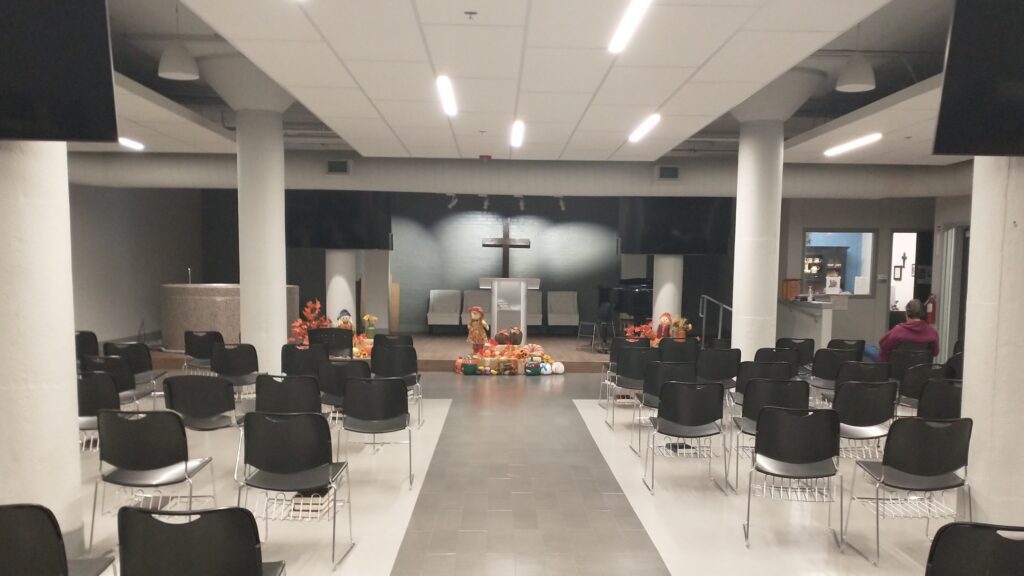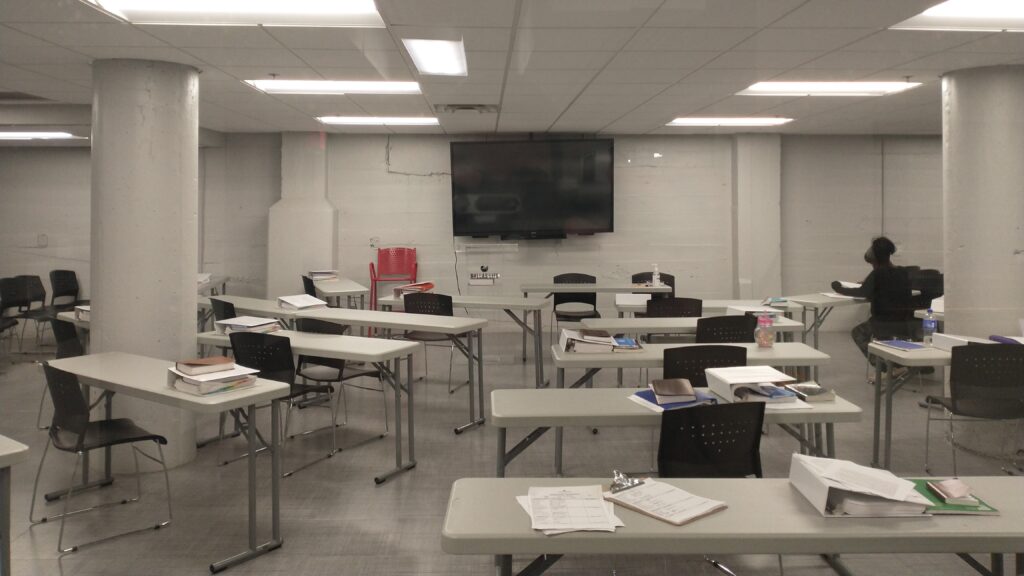As Dallas continues to wrestle with a crisis of homelessness, one recovery center in the heart of the city is working to help the homeless return to a stable life through a program that emphasizes responsibility and spiritual growth.
Dallas LIFE executive director Bob Sweeney recently sat down for an interview with The Dallas Express in which he explained that this organization prioritizes “accountability and responsibility” for its clients.
“I have rules and expectations,” he said. “Anyone can come here, but you can’t come here and tell me the way you are going to continue your substandard existence.”
Dallas LIFE’s campus has 500 beds in addition to 53 private rooms for families. While Dallas LIFE provides food, lodging, and other services, Sweeney said he does not believe a “permanent hand-out” is an effective way to restore people’s lives.
He added that methods like “housing first” and the City of Dallas’ Rapid Rehousing Initiative fall short because they rush people into an apartment without addressing deeper issues.
“They come broken,” he said. “You can’t just tell them, ‘One size fits all.’ You need to just look at them and say, ‘I care. I don’t know what brought you here, but it’s going to get better.’ Give them time.”
Sweeney said the distinguishing factor between Dallas LIFE and other homeless services throughout the city is that Dallas LIFE digs deeper and focuses on the spiritual health of its clients in addition to more evident struggles, such as drug addiction or mental illness.
He said Dallas LIFE’s approach is based on “distinctive Christian principles.” The nonprofit’s services are open to people of all faiths, and clients are not required to convert to Christianity. However, participants do attend Bible studies and chapel services throughout their recovery.

“There is a spiritual element to recovery,” Sweeney said. “God plays an active role in the recovery of a person.”
He told The Dallas Express that Dallas LIFE has seen a 90% success rate through its flagship program, Homeless No More, which is free of charge. The program is divided into four phases that see participants through the initial stages of transitioning out of homelessness all the way to full-time employment and a stable, well-rounded life.
In the first phase, which lasts for 30 days, participants work on the Dallas LIFE campus in places like food service or laundry. During this phase, many clients are also detoxing from drugs and alcohol.
Sweeney said that random drug tests are run on everyone else at Dallas LIFE – not only clients but also staff and himself – with the exception of participants first entering the program. Phase 1 clients are exempt because it’s expected that they still have substances in their system.
“Foreign substances are leaving your body at that time,” Sweeney said. “68% of all people going into shelters are showing signs of either drug [and] alcohol consumption or [a] mental illness problem. So, we want to give time for that and be respectful of that. I really don’t believe one size fits all.”
When clients transition into Phase 2, they begin taking classes on everything from anxiety and depression to job readiness and resume preparation. Other classes include shopping, cooking, relationships, personal finance, and the psychology of addiction. Men and women also take classes that focus on gender-specific issues.

Phase 2 clients also receive counseling with masters-level counseling interns from Dallas Theological Seminary. Sweeney said that by the time clients reach Phase 3, they are “more regularly prepared for life” and ready to begin pursuing employment.
“You will then look for part-time work,” he said. “I make you fill out 15 job applications every week in Phase 3, or you are asked to leave. … I’ve not had one Phase 3 person that didn’t get employed because three months of 15 [applications] per week is 180 job [applications], and everyone gets a job if you [apply] at 180 places. And everyone’s hiring.”
Sweeney said that even if his formerly homeless clients do not have a specific skill set or a glowing resume, they now have “an awakening of life.”
“They have a heart to really work,” he said. “They want to get their family back. They want to do the right thing.”
Phase 3 clients also begin rebuilding personal relationships and are given a mentor of the same gender for guidance and encouragement.
In the final phase of Homeless No More, clients focus on working full-time, either by obtaining one full-time job or multiple part-time jobs. Sweeney said many residents even become entrepreneurs and own businesses such as security companies, daycares, or car detailing services by the time they leave Phase 4.
“The four-phase approach means a lot to us,” he said. “The average shelter in America with a long-term recovery program sees between 3% and 5% of its people graduate and never need shelter services again. I see 90% [and] I have the data that proves it.”
If they follow the program as designed, Sweeney explained, a client completing all four phases of Homeless No More will go from living on the street to having a place to live, full-time employment, a renewed spirit, and restored personal relationships, all in about 10 months.
In addition to the mainline four-phase approach, Dallas LIFE also offers specialized services for clients with unique struggles, such as seniors or those suffering from “a mental health issue [or] physical infirmity that prevents them from going back to the job market.” The organization additionally works alongside the Veterans Administration to offer services that cater to homeless veterans’ situations.
Dallas LIFE’s approach with an emphasis on accountability mirrors elements of Haven for Hope in San Antonio, whose success has been previously covered by The Dallas Express. Haven has been credited with a 77% reduction in homelessness by partnering with the City of San Antonio to implement its approach.
Meanwhile, recent polling indicates the people of Dallas remain frustrated with homelessness, vagrancy, and panhandling throughout the city as nonprofits such as Dallas LIFE chip away at the problem on an individual basis.


